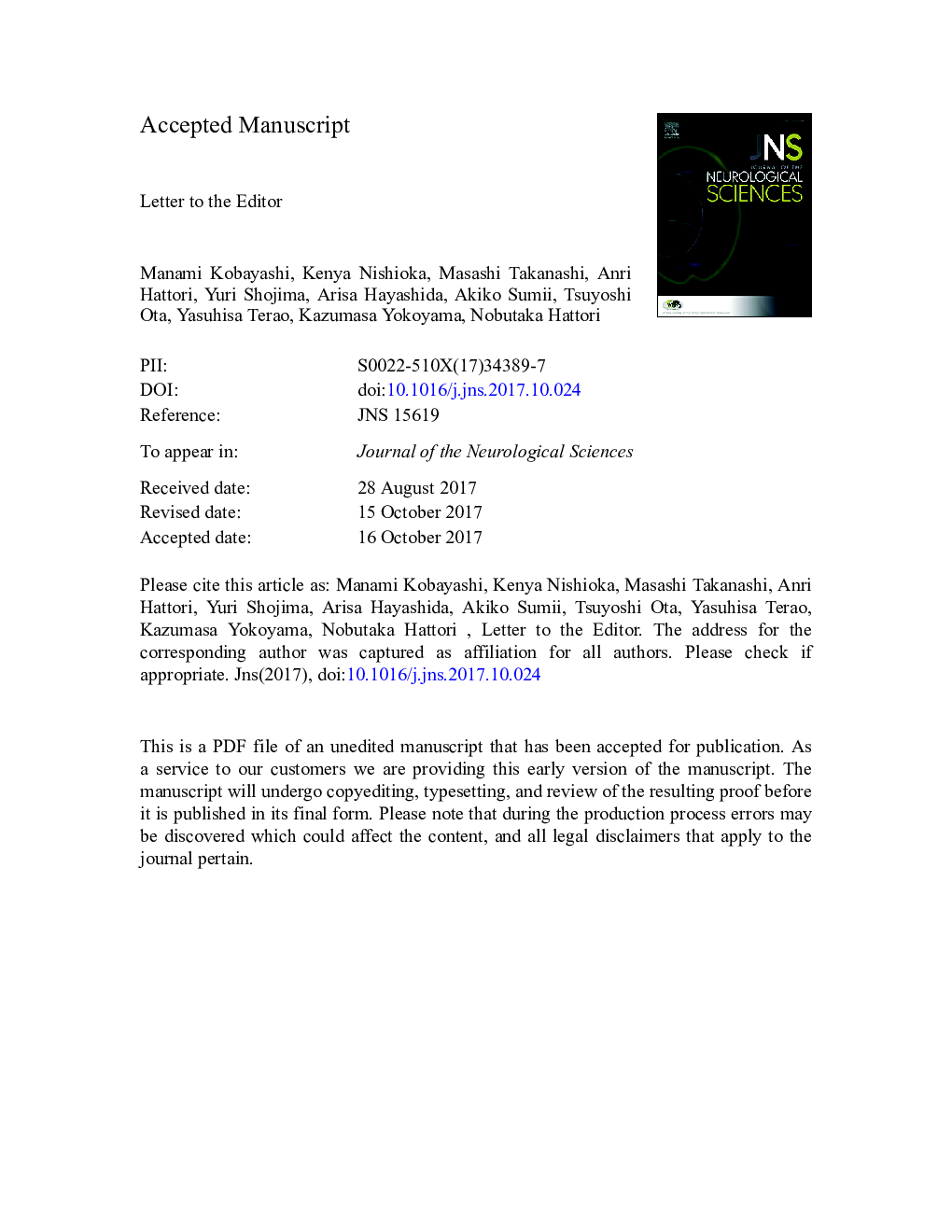| Article ID | Journal | Published Year | Pages | File Type |
|---|---|---|---|---|
| 8273252 | Journal of the Neurological Sciences | 2017 | 13 Pages |
Abstract
A 44-year-old woman presented with a large-cell neuroendocrine carcinoma and uterine endometrioid carcinoma with anti-N-methyl-d-aspartate receptor (NMDAR) encephalitis. Following the diagnosis of uterine cancer, the patient suddenly developed psychosis with abnormal behaviors, delusions, irritability, and forgetfulness. The cerebrospinal fluid tested positive for anti-NMDAR antibodies (encoding the NR1 subunit). The patient was diagnosed with paraneoplastic limbic encephalitis due to uterine cancer. Histology of multiple abdominal metastatic samples revealed a neuroendocrine tumor. Her consciousness improved temporarily after tumor resection and comprehensive immunomodulatory therapy. On day 104 after admission, the patient died of multiple organ failure. The autopsy revealed a perivascular infiltration of inflammatory cells in the amygdala and NMDAR-positive cells in the primary uterine cancer. Our findings demonstrated that neuroendocrine tumors can induce anti-NMDAR encephalitis, which is consistent with three previous reports. A comprehensive treatment with resection of the carcinoma, immunoglobulins, and plasma exchange can induce a partial improvement of the symptoms.
Keywords
Related Topics
Life Sciences
Biochemistry, Genetics and Molecular Biology
Ageing
Authors
Manami Kobayashi, Kenya Nishioka, Masashi Takanashi, Anri Hattori, Yuri Shojima, Arisa Hayashida, Akiko Sumii, Tsuyoshi Ota, Yasuhisa Terao, Kazumasa Yokoyama, Nobutaka Hattori,
